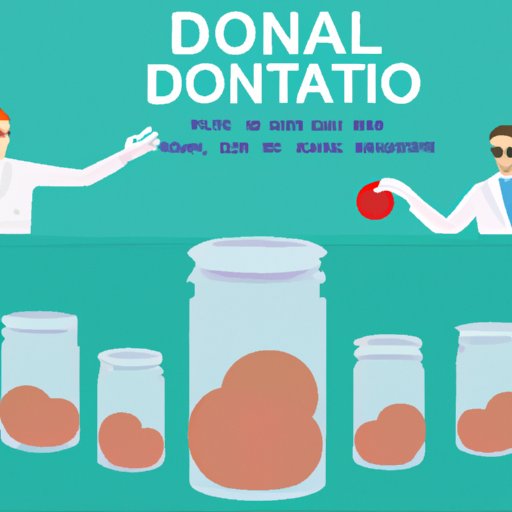
Introduction: Overview of Donating Your Body to Science
Donating your body to science is an altruistic act that can have a tremendous impact on medical research and education. With the right information and preparation, donating your body to science is a straightforward process that provides many benefits.
According to the American Association of Tissue Banks (AATB), “Body donation is the gift of the human body after death to science for medical research, training or education.” By donating your body to science, you are providing a valuable service to humanity by enabling medical professionals and scientists to advance their understanding of diseases, develop new treatments and therapies, and teach future healthcare providers.
There are numerous benefits to donating your body to science. In addition to helping others, donating your body to science eliminates any funeral expenses for your family and provides closure for those who love you.
Types of Donation Programs
Donation programs come in a variety of forms, each with its own set of eligibility criteria and restrictions. The most common types of donation programs include academic donation programs, medical research donation programs, and military donation programs.
Academic Donation Programs
Academic donation programs are typically affiliated with medical schools, universities, and other educational institutions. These programs are used to teach anatomy, surgical skills, and medical procedures to students, as well as to provide cadavers for research. Most programs require a minimum age of 18 years old, but some may accept younger donors.
Medical Research Donation Programs
Medical research donation programs are run by hospitals, research institutes, and other organizations to support medical research. These programs may focus on specific diseases or conditions, such as cancer, Alzheimer’s disease, or diabetes. As with academic donation programs, there is usually a minimum age requirement.
Military Donation Programs
The U.S. military offers donation programs for veterans and active-duty personnel. These programs are used to study the effects of combat-related injuries and illnesses on the human body. Participation in these programs is voluntary and requires special permission from the donor or their family.

Legal Requirements for Donating Your Body to Science
In order to legally donate your body to science, certain documentation and eligibility criteria must be met. Generally speaking, you must be at least 18 years of age and have a valid form of identification, such as a driver’s license or passport.
It is also important to note that you must have written consent from your next of kin in order to donate your body to science. This consent must be provided in the form of a notarized document signed by your next of kin, or in the form of a witnessed statement.
Costs Associated with Donating Your Body to Science
Most donation programs do not charge fees for accepting your body, but some may require a small fee to cover administrative costs. Additionally, some programs may offer reimbursement for funeral expenses. It is important to contact each program individually to determine if they charge fees or offer reimbursement.
Preparing Your Family for Your Decision to Donate Your Body to Science
While it is ultimately up to you to make the decision to donate your body to science, it is important to discuss this decision with your family. This will ensure that your wishes are honored and that your family understands the importance of your decision.
Explaining the benefits of donating your body to science can help your family understand why you chose to make this decision. For example, donating your body to science can eliminate any financial burden related to funeral expenses, and can provide closure for your loved ones by giving them a sense of purpose in honoring your wishes.

Stories from People Who Have Donated Their Bodies to Science
Hearing stories from individuals who have donated their bodies to science can help provide a better understanding of the process and the impact that donation can have. According to one donor, “Donating my body to science was one of the most meaningful decisions I ever made. Knowing that my body could potentially help people live longer and healthier lives was incredibly rewarding.”
Family members of donors often find comfort in knowing that their loved one’s body was used to advance science and improve the lives of others. As one family member said, “My mother’s decision to donate her body to science gave me so much peace of mind. Knowing that she was able to help others even after she passed away was a great source of comfort.”
Conclusion: Summary of Donating Your Body to Science
Donating your body to science is a selfless act that can have a lasting impact on medical research and education. There are numerous types of donation programs, each with their own set of eligibility criteria and restrictions. Legal requirements for donating your body to science include being at least 18 years of age and having written consent from your next of kin. Costs associated with donating your body to science vary depending on the program, but some may offer reimbursement for funeral expenses. Preparing your family for your decision to donate your body to science is essential, as it will ensure that your wishes are respected and that your family understands the importance of your decision.
Stories from people who have donated their bodies to science can provide insight into the process and the impact that donation can have. Ultimately, donating your body to science is an altruistic decision that can benefit countless lives.
(Note: Is this article not meeting your expectations? Do you have knowledge or insights to share? Unlock new opportunities and expand your reach by joining our authors team. Click Registration to join us and share your expertise with our readers.)
